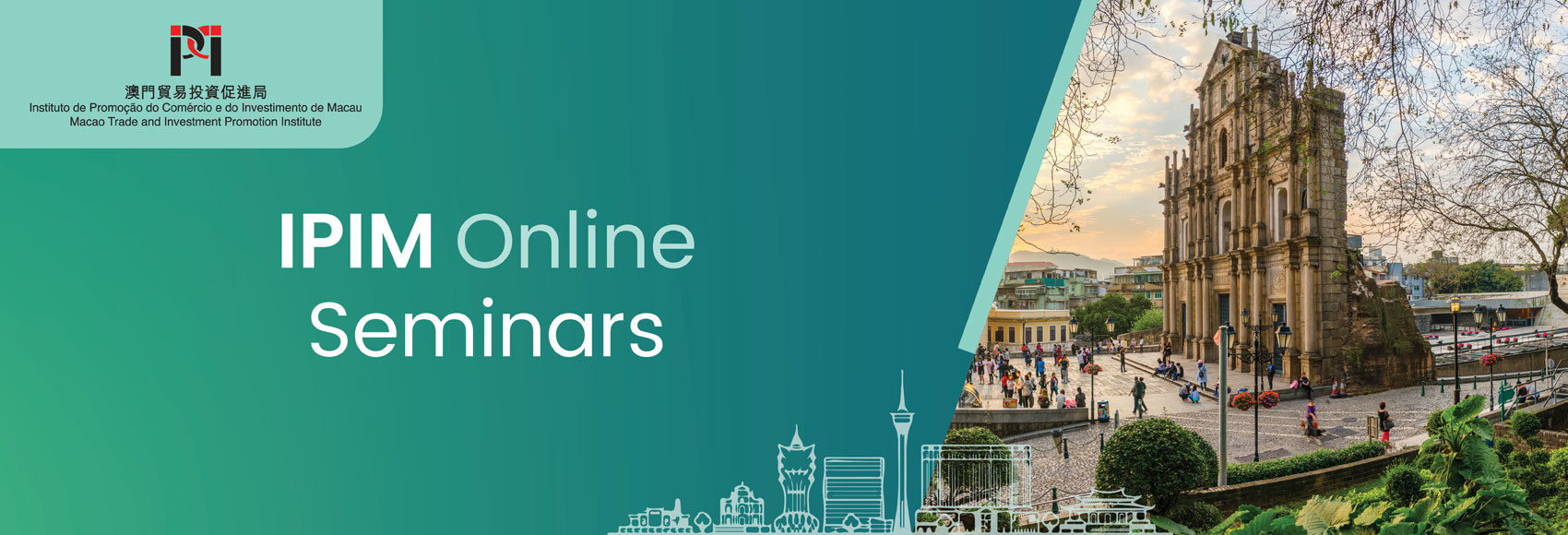This session looked at how the association meetings industry has been impacted by the COVID 19 pandemic and how associations are responding. Most have been hit hard financially and are having to adapt to a new way of doing business and organising events. COVID-19 has changed how they select destinations and suppliers, the way they organise and promote their events, what type of support they are looking for and how they manage risk. Participants learnt how to approach the association sector when looking to bid for their conferences, what they are looking for in the destination, products and services.
On 29 July 2021, IPIM hosted an online seminar “Creating a Sustainable Destination” presented by Guy Bigwood, Managing Director and Chief Changemaker of Global Destinations Sustainability Movement. The purpose of the seminar was to build awareness of the importance of sustainability and to provide guidelines on how to adopt sustainable and regenerative practices within the MICE industry.
The seminar introduced a number of industry initiatives underway to benchmark and set industry standards at a destination and supplier level.
As uncertainty continues for the global MICE industry and the ability for MICE destinations, products and services to engage face to face with prospective clients has been diminished, the importance of social media platforms as a promotional tool continues to gather pace. Social media will continue well past COVID as an important tool to complement traditional sales and marketing strategies.
We live in a rapidly changing world with an increasing degree of risk and uncertainty. Over the last few decades alone there has been global economic instability, extreme climate events, terrorist incidents, citizens unrest, military conflicts and global pandemics, many of which have had a direct impact on the business events industry. COVID-19 has brought the events industry to a standstill creating hardship and challenges for the entire industry. Moving forward companies need to prepare for the unexpected so they can better deal with the next crisis. It is not a question of “if the next crisis will occur” but “when”.
This session looked at how important it is to develop a crisis communication plan, to identify and communicate with all stakeholders, when is the right time to communicate and what to communicate to mitigate the impact of the crisis. There were two case studies from a destination management and event planning perspective. One of the case studies relates directly to COVID-19 crisis management the other relates to a more common crisis situation.
The past few decades have seen tremendous technology change and this coming decade will be no different. According to Corbin Ball, one of the world’s leading technology experts for the business events industry, the 2020s, will see artificial intelligence (AI) as the most significant technology change agent of this decade. This session deep dived into how AI is currently being adapted by conferences and exhibitions and how it can benefit both online and onsite events.
Artificial Intelligence is the use of computer systems to perform tasks that normally require human intelligence, such as visual perception, speech recognition, decision-making, problem solving and translation between languages.
One of the consequences of COVID-19 is the fast tracking of digital technologies for the business events industry. For more than a decade the industry has been looking at ways it can adapt and monetise these new technologies but now the industry has little choice but to upskill and embrace the new virtual experience economy. This session provided an insight into how some of the industries innovation leaders, Events Air, PICO and the MCI Group are moving forward to create virtual and hybrid events that best complement and replicate the benefits of live events.
Hybrid events are defined as a meeting, conference, exhibition or other meeting that combines a "live" in-person event with a "virtual" online component.

















